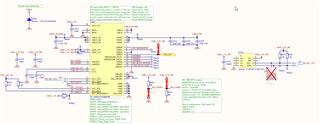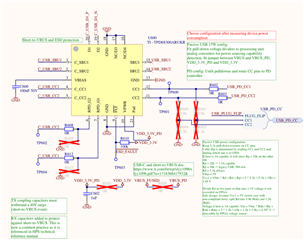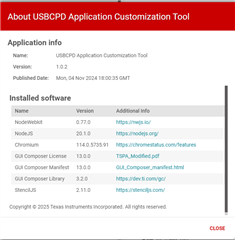Other Parts Discussed in Thread: TPS65982, , TPD6S300, TPD4E05U06, TP600
Tool/software:
Hi,
I'm running into the following issue with the chip. I am using the TPS25751D to sink 5V 3A with the default 15W sink profile from the Application customization tool. My laptop sends hard reset commands when I plug my PCB to it, resulting in the following curve:

Oddly, this happens on the 15W capable USB-C ports on my laptop but not on the 7.5W capable ones. Here's the schematic around the PD chip:

While investigating, I removed all GPIO mappings. I disconnected loads such that the device drew next to no current. I also changed all config options one by one and only the "PD disable" solved my problem (of course, we would like to keep PD negotiation). I have tried to set the dead battery configuration to AlwaysEnableSink, it did not change the behavior. Finally, I tried to clear the dead battery flag as soon as VDD_1.8V_IO was present (around 0.6 ms after VBUS is available).
This problem does not happen on the same port with another device of ours that uses the TPS65982 with the same 15W profile, drawing 5 to 10W. We have tested other boards and the problem still arises.
I have noticed that applying 3.3V externally to VIN_3V3 before plugging the USB-C cable solved the issue. Our internally generated 3.3V rail is up approximately 4ms after VBUS is applied, and this does not change between the laptop USB ports that work and those that don't.
Do you have any input to help me troubleshoot this issue? I am running out of ideas at this point. Anything will help.
Thanks in advance,
Marc




